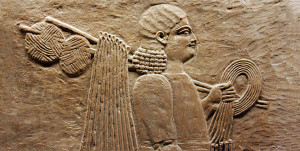Origin of Charans
Cāraṇas (plural Chaarans; Hindi:चारण; Gujarati:ચારણ), is a caste living in the Rajasthan & Gujarat states of India. According to Srimad Bhagavatam (Śrīmad Bhāgavatam) (3.10.28-29) Charans were created along with other divine forms such as Yaksha, Gandharvas, Deva, Sidhdhas, Apsara, etc.; and lived in the Heavenly Planets. Members of this caste are known for their high literary sense, deep loyalty towards the society and cleverness and unflinching readiness for martyrdom in war. [1] Charan caste is also identified as Devi Putra, Kaviraj and Jagirdar accordingly. Members of this caste are considered to be divine by a large section of society. Charans are divided into many groups such as Maru Charan, Tumbel Charan and many more, where each one of these groups consists of different surnames like Modd, Detha, Baati, Barhat, Sinhdhayach, Ratnu, Taparia, Lamba and many others.
Women of the caste are highly respected by other major communities of the regions around including the Rajputs / Darbars.
The goddesses Karni Mataji, Bahuchara Mataji, Khodiyar Mataji, Mogal Mataji and Sonal Mataji are well-known examples of Charan Maha Shakti mothers. All Charan Maha Shaktis’ are represented with the word “આઈ મા” (aai ma), for example “આઈ શ્રી ખોડીયાર મા” (aai shree khodiyar maa), “આઈ શ્રી સોનલ મા” (aai shree sonal maa). Due to this the Charans are also known as Devi Putra; meaning “The Sons of goddess’.
In the medieval era, it was considered a matter of prestige and pride for a Rajput king to keep a Charan in his court. The kings would also invite them to occupy a place in the Royal Courts. Indeed, a Rajput’s regard for a Charan was uppermost. Rajputs trusted Charan the most. Because of their ability to think in a different manner, another popular way of addressing members of the Charan caste is “Kaviraj”, which literally means “king among poets”. Charans are considered to be the only thakurs other than the rajputs. Charans were always posted in the front lines of attacks in the armies

